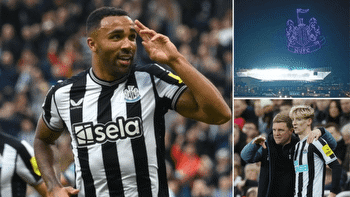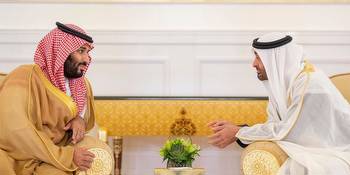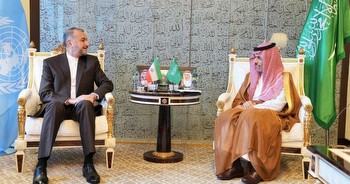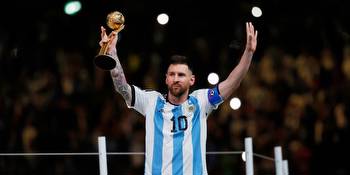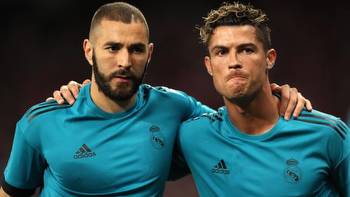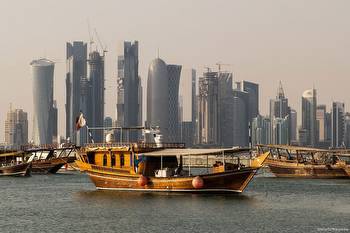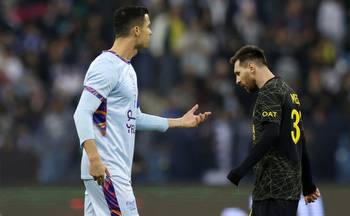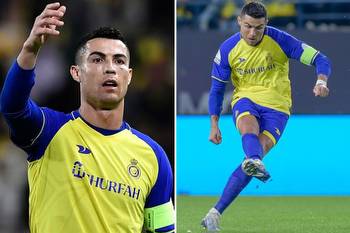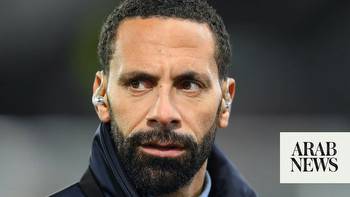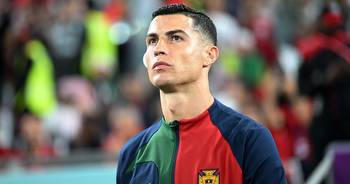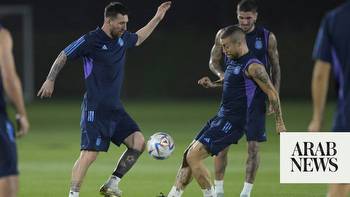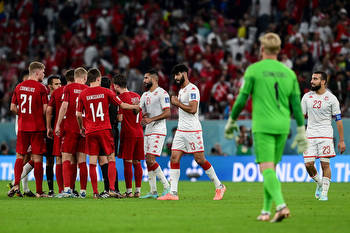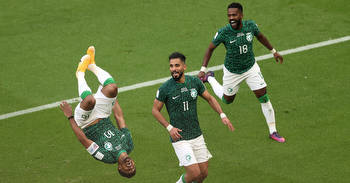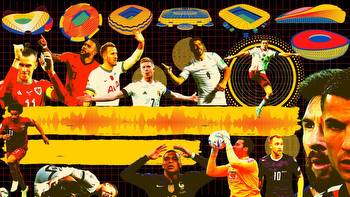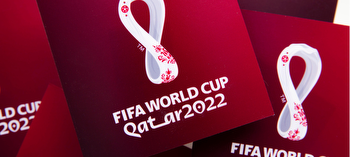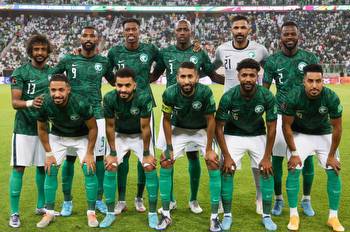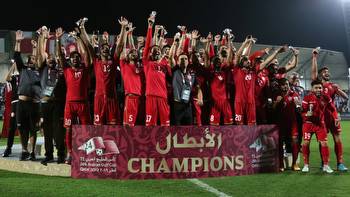Colin Sheridan: Premier League soon a proxy playground
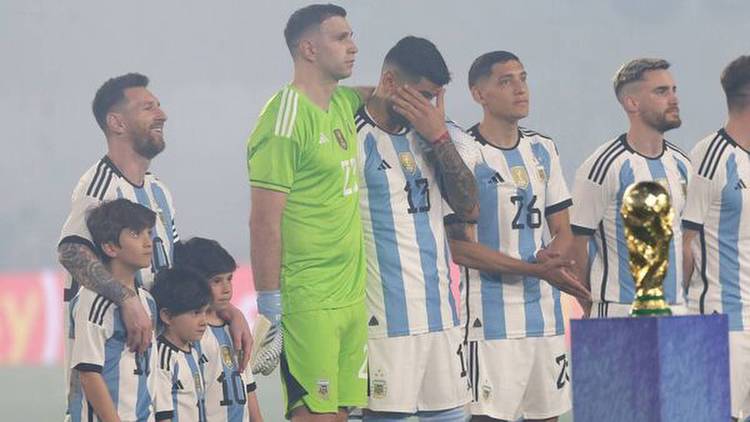
With the sky lit up by fireworks, there was no deafening music blaring from tannoys, no DropKick Murphys or Freed from Desire, no irritating announcer trying to whip fans into a frenzy - all there was was 84,000 people singing acapella. The song they sang - Muchachos - was written by one of them and has become an unofficial anthem for Argentinian football. Everybody knows the words, even the players, and as they took their places for the actual anthems the stadium was lifted by a noise so profound the Monumental seemed to levitate, suspended above itself, looking down upon the glorious city.
It was an emotional scene. Leo Messi, a man who has lived in a metaphorical gated community since his genius became apparent a quarter of a century ago, smiled the smile of a child, his eyes wet and dancing a tango nuevo. On the sideline, his friend and manager Lionel Scaloni - so stoic throughout the unforgettable theatre in Qatar - could not contain his mirth. His children at his side, he could but laugh at the beautiful absurdity of a moment that was as utterly pure as it was spontaneous.
Football - the supposed game of the people, a sport whose sworn protectors long ago shopped its soul to the highest bidder - was, for those few minutes at least, reclaimed by the very citizens its senators pledged to serve - the fans. Their passion elevated the moment to myth and in doing so managed the impossible - humbling its king. In that moment, Messi, all too often aloof and inscrutable, was truly one of the people.
At about the same time Muchachos rang out in the Buenos Aires sky, somewhere in a windowless office very far east of the River Irwell, lawyers and wealth managers were chiselling out the minutiae of a new and improved Qatari-led bid to buy Manchester United. The bid, if successful, will see United become the third Premier League club effectively owned by a 'state', following Manchester City and Newcastle United's high-profile takeovers by Abu Dhabi and Saudi Arabia respectively. The moral case for such an eventuality continues to polarise, but the geopolitical implications are just as potentially profound.
As recently as 2017 the UAE and Saudi Arabia severed all diplomatic ties with Qatar, despite Doha contributing troops to the Saudi-led "intervention" in Yemen. The reason given was Qatar's "embrace of various terrorist and sectarian groups aimed at destabilising the region", including the Muslim Brotherhood, al-Qaida, and ISIS. As part of this diplomatic Coventry, the Saudi-led quartet closed off its airspaces, territorial waters and land borders to Qatar. The impasse ended in early 2021, but the current detente is perceived by many as tenuous, and contingent on an accepted subservience to Saudi Arabia.
Qatar’s desire to enter the Premier League as custodians of one of the biggest football clubs in the world is just another twist in a story more complex than a La Carre novel. The Premier League, by welcoming such geopolitical heavyweights into its ranks under the absurd guise of well-intentioned owners, stands to become a playground for proxies whose motives are inextricably far more nuanced than just “the love of the game”.
Such is the prevailing ignorance in the West of all things near, middle and far-eastern, we have a lazy habit of lumping our Qatars in with our Bahrains, Dubais, Saudi Arabias et al, as if they are somehow all the same. This gross oversimplification is an obvious legacy of orientalism and shows scant regard for the implications of the totemic lines drawn in the sand by mid-ranking British and French civil servants as the Ottoman empire fell apart during the Great War.
That such eastern influence should come back to exert its power over the seemingly omnipotent Premier League - the self-declared “greatest league in the world” - has an almost karmic quality to it. For centuries, the West, fuelled by power attained in no less nefarious ways than today's oligarchs, used colonialism to divide, conquer and eventually cast aside. Now, roles reversed, the East is returning the favour.
The only difference is, instead of cannons and artillery, money and influence are the weapons of choice. The lines drawn in the sand a century ago are the deals done in football boardrooms today.
“We’ve taken Aqaba!” Peter O’Toole defiantly announced in Lawrence of Arabia. Now, Manchester looks set to fall the other way.
Sigerson footballers and Fitzgibbon hurlers must look at March Madness with just a little envy. The annual National Collegiate Athletic Association basketball extravaganza reached its famed Final Four this weekend after a fortnight of upsets that saw top-seeded schools Alabama, Houston, Kansas and UCLA all fall to schools many American fans had never heard of, much less countenance as teams that would disrupt their coveted brackets.
As wild as the play was on the court, there was inevitable extra-curricular drama that, in any other news cycle, may have dominated the entire tournament. But in the bottom-line obsessed world of elite college sports became an already forgotten afterthought.
When Alabama - many people's favourite for the national title - fell to heavy underdogs San Diego State, the blame was laid squarely on the shoulders of freshman forward Brandon Miller, a player who, up to the beginning of March Madness, looked likely to go in the Top 3 of this year's NBA draft.
What changed? Well, in January, Miller's Alabama teammate Darius Miles was charged with the capital murder of 23-year-old mother Jeanna Harris. Police have said Miller drove the murder weapon to Miles and was present at the scene of the shooting. He was never arrested or charged because, according to the player and - crucially - Alabama, he was unaware the gun was in the car he was driving.
Regardless, Miller, 20, witnessed a murder. Less than a day and half after the shooting, he dropped 30 points on Vanderbilt. Since that game the player has slowly crumbled, looking a pale imitation of his former self. Alabama’s insistence on prioritising their national championship prospects over the mental health of their star player, who - let's remind ourselves witnessed a murder only two months ago - may have been the most insane example of March Madness ever displayed. One wondered how they would’ve treated him if he wasn’t good at basketball.
Now that it’s clear Mayo are dead certs to win the All-Ireland, Ireland are 100% going to win the Rugby World Cup, and Evan Ferguson will break Robbie Keane’s goalscoring record by June, we can rest easy and bask in the prospective glory of all of these things happening just as this early spring has promised us. The only thing left to quibble over is who should win RTÉ Sports Personality of the Year? Johnny? Aido?? Evan’s mum? If only things happened as we want them to…
Tread softly on our dreams, dear seasons.
“Just when I thought I was out…they pulled me back in." So said Stephen Cluxton - maybe - as his appearance on the pitch in Croke Park yesterday served as an ice-cold reminder that - with the exception of the aforementioned Mayo - no obvious county looks set to replace Dublin as the team you have to beat to win an All Ireland. His presence seemed to say “yis had yer chance, boys…” Sunday lunch was never so hard to swallow.

